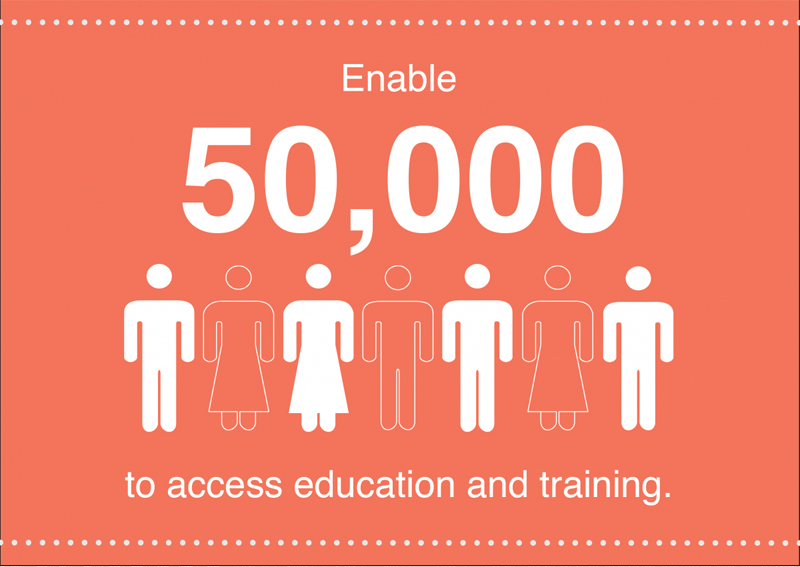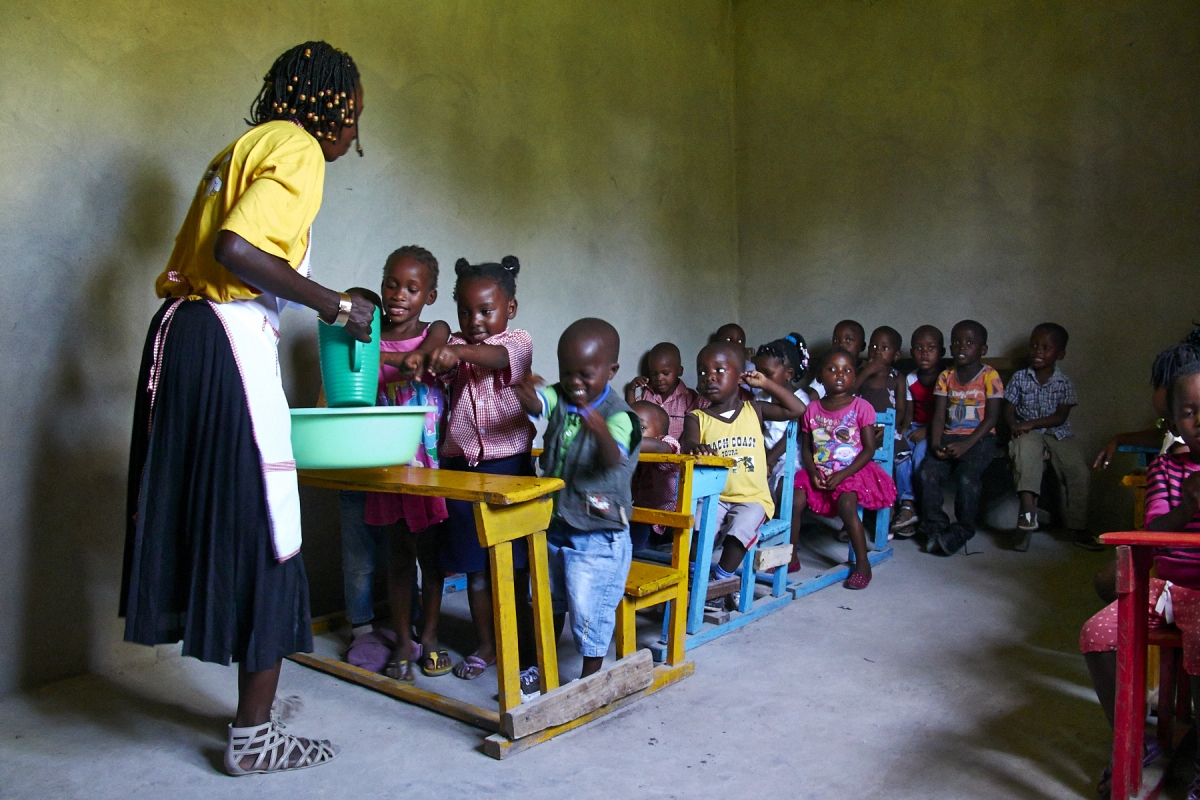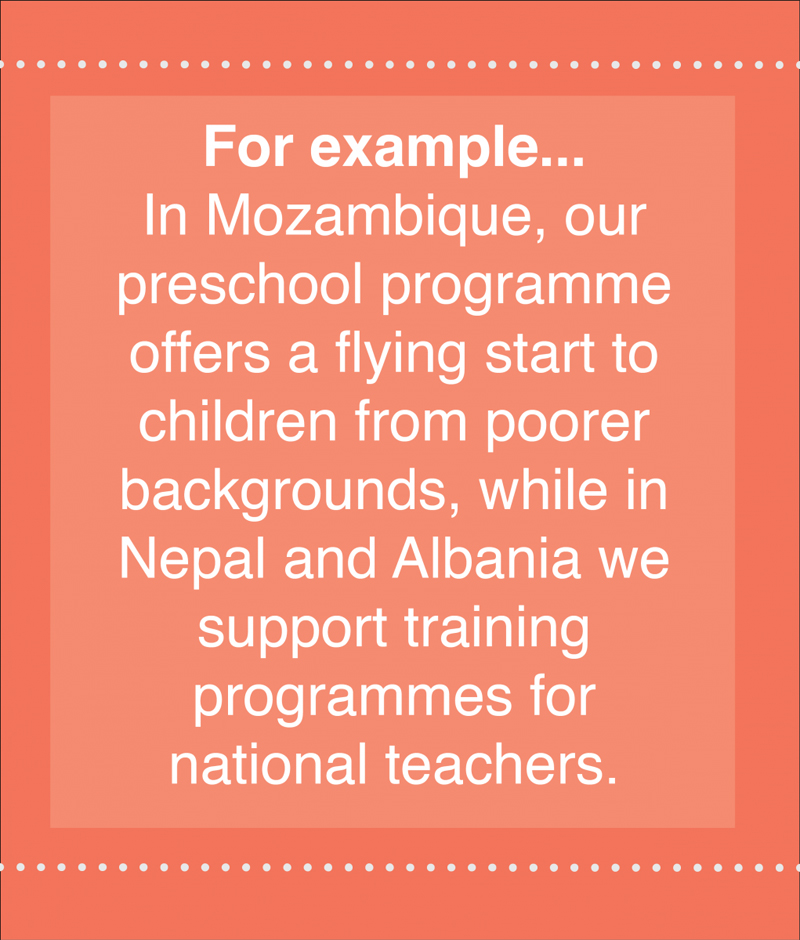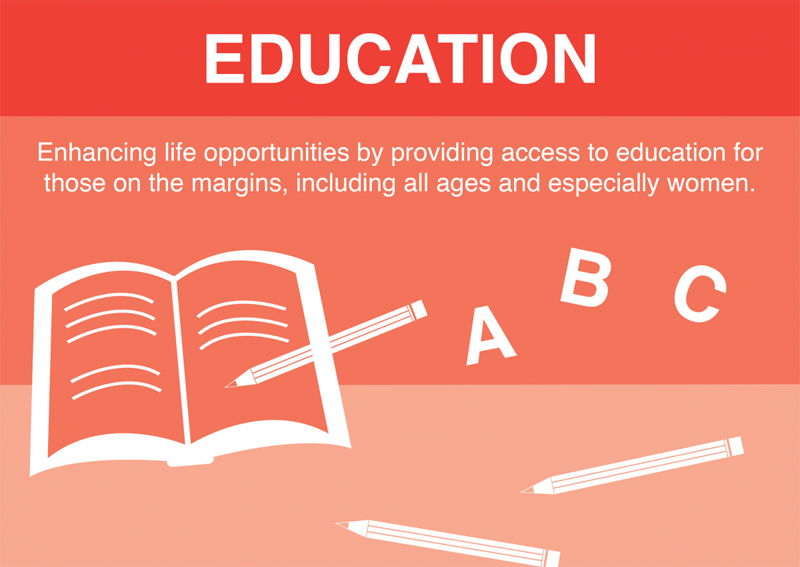Our plan to give 50,000 people access to education
Giving the hope of a better life to thousands of the poorest children and their families through education is one of the goals of the new BMS World Mission strategy

Being born into poverty does not mean that you have to stay there.
The success of the Millennium Development Goals in lifting millions of people out of poverty since the year 2000 is testament to that. We can make a difference. We can help the poorest and most marginalised to develop decent livelihoods so they can provide a brighter future for their children and grandchildren.
Education is one way we can help the most disadvantaged onto the path to a better life. That is why we have a plan to enable 50,000 people worldwide to get access to education and training by 2020 – people who are on the margins of society and would not normally get the opportunity to succeed at school.
Behind the numbers

Staying in school is a huge problem in Mozambique, one of the countries where BMS will be making a difference with our education plan. Half of all children there do not progress beyond primary school*.
It is especially hard for those from poor backgrounds. Many start school not knowing basic colours or how to count, largely due to the lack of education their parents have had. Class sizes can range from 50 up to 100 children, making it almost impossible to get the one-to-one or small group supervision that would help struggling children improve. The quality of teaching varies too. There are only 27,000 fully qualified teachers out of 115,000 teaching in Mozambican schools.*

“Many teenagers are still in primary school,” says BMS mission worker Liz Vilela. “They don’t know how to read or write and that is going to affect them for the rest of their lives, because they are going to be demotivated to work their way out of poverty.”
BMS is already providing hope for more than 3,000 children from poor backgrounds in Mozambique through our support of the preschool initiative PEPE, which Liz works for. Run through churches in disadvantaged areas, PEPE is helping children aged three to five years old to be better prepared for going to school by teaching them some of the basics like letters and colours, as well as encouraging them to enjoy learning and telling them about Jesus. Liz is working alongside the national co-ordinator for PEPE in Mozambique to support him in organising the programme and is seeing the difference it is making in children’s lives.

“PEPE is so important because children start school already knowing the alphabet, knowing numbers, so they are already ahead of other children that don’t go to PEPE,” she says.
Part of Liz’s role is training teachers for PEPE, many of them from disadvantaged backgrounds themselves. The teachers she is helping to develop are becoming highly motivated and passionate about serving the children.
“It is such a great opportunity for people who want to serve God in mission and serve children to train through PEPE and to see lives changed through the work that they do,” she says. From her experience with PEPE, Liz knows that the new BMS strategy – to give thousands more children and adults access to education – is vitally important.
“We are seeing how education opens up opportunities for people to work themselves out of poverty on their own, rather than getting help from others,” says Liz. “Working to improve education is going to open more doors for more people.”
We can only achieve this goal with God’s help and your support. Will you stand with us, pray and give generously so we can enable thousands more disadvantaged people to access education and training and help them out of poverty?
*UNICEF
This article first appeared on the website of BMS World Mission and is used with permission.
BMS World Mission, 01/04/2016